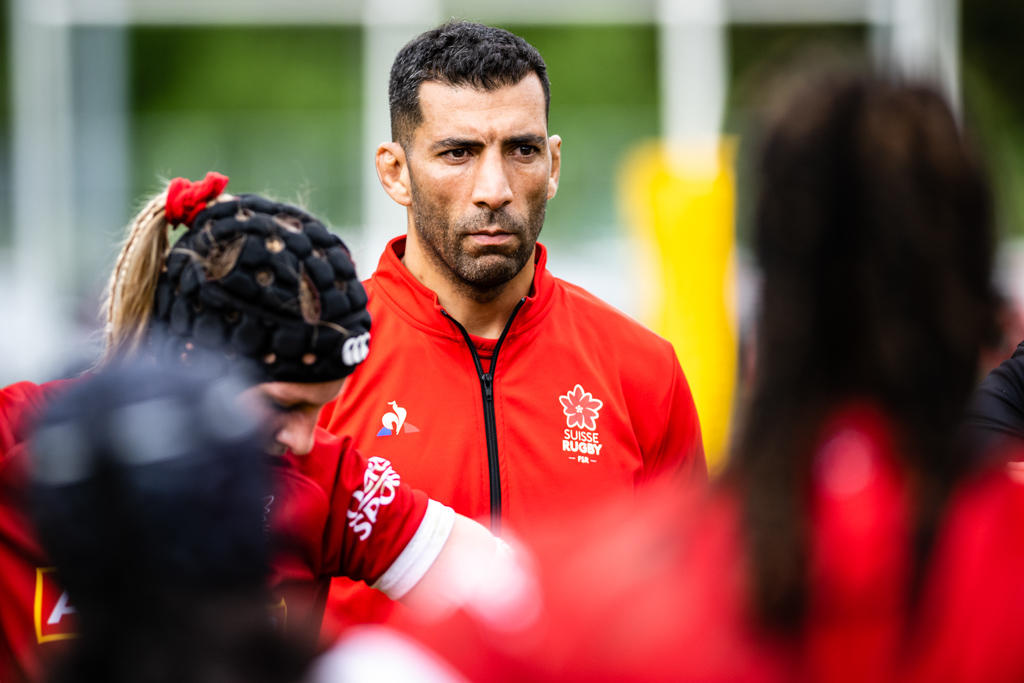Rugby
COACHING
Get into coaching - Inspire future talents
Rugby Coaching in a shutshell
Tackle the challenge Get into coaching
Why rugby coaching is so important
It is proven to be true that even after minimal coaching, a group of players will approach a team ball game very differently; they will know the rules better, function as a unit and play for each other. And, the better they play the game, the more they love it. At the basic level, that is what coaching can do and why coaching is important.
But how do you become an effective coach?
To become a rugby coach, you don’t need to have been a great player - love and some knowledge of the game are the main ingredients along with a desire to share your passion with players. Your role will be to help players develop to achieve their maximum potential and to mould them into a team.
When you become a coach you’ll find that you use a variety of ways to get your message across. Obviously, you’ll talk to your players but you should be aware that research has shown that how you make your point – tone of voice and body language – has a much greater impact than what you say. Also, players learn best when they are actually involved in the learning process, so rather than just telling players what to do you will get far better results by asking them for their input on how to resolve a particular problem or presenting the problem to them and asking them to solve it themselves with you in the background if they need you.
Naturally, there is no ‘one style fits all’ solution to coaching. There will be times when just telling the players will be the best approach and times when letting the players solve a problem themselves will be best. Players are individuals and will respond differently to different styles and in different situations. How you approach each problem will depend on the player and the circumstances; in this respect experience plays a major part.
Coaching can be incredibly frustrating at time, but on the other hand be tremendously rewarding - but more importantly, it can teach you how to become a better person and leader.
7 key habits that make a great coach
Tackle the challenge Get into coaching.
#1 - Honesty
You want your players to trust you. When it comes to the tough decisions, especially in terms of selection, you should be honest about the reasons for what you are doing. You cannot afford to go back on your word either. Therefore, be careful in the promises you make.
#2 - Human
Admit mistakes when you have made them. Do it quickly, without excuses and then move on. Again, players will trust you more in the long term. Of course, top coaches don’t make many mistakes but they are not afraid to admit to them.
#3 - Clarity
Have a clear plan, know in what direction you are heading and make sure everyone else does to. It gives purpose to training and preparation. It helps others plan, ask the right questions and understand why they are there.
#4 - Fresh
Keep training sessions up-to-date and fresh. That does not mean completely different every week. Instead, look for new ways to do the same things. Introduce different ideas to stimulate the players. Challenge yourself to want to know more. Never stop learning as a coach or want to stop learning, otherwise you should stop coaching.
#5 - Lead with leaders
Have a strong team of leaders within your team. They will influence others in the team. If you give these leaders responsibility, they will trust you. Share and develop your plan with these leaders and they will follow you more. But don’t ignore your other players. Show them care and attention.
#6 - Vision
The top coaches dare to dream. You can do the same and then focus your energies on what needs to happen to get there. Your planning, your actions, your demeanour will all reflect that dream. “Your vision will become clear only when you can look into your own heart.”
#7 - Energy
Give energy to players by wanting them to improve all the time. Look for ways to keep everyone moving forward. Be positive in your outlook. Try to cut out energy sappers, players who make others feel bad and unloved.
Coaching in Switzerland
Tackle the challenge Get into coaching.
There are 4 main strands of education in Swiss Rugby. Each is based mainly on face-to-face classes. One of the 4 strands is COACHING EDUCATION.
There are different coaching pathways in Swiss Rugby - because different levels of coaching education are needed to coach at different levels and forms of the game.
- 15-a-side Rugby
- Olympic Rugby (7s)
- Strength & Conditioning
Suisserugby has partnered with the Federal Sports Office of Youth & Sport program and World Rugby's Training & Education program to build a robust education pathway for its members. Coaching Education in Swiss Rugby is therefore divided between the World Rugby/ FSR pathway and the Swiss Youth & Sport pathway as follows:
- Coaching children or youth: A Swiss Youth & Sport coaching certification is needed.
- Coaching adults: A Jouth & Sport OR a World Rugby /FSR certification can be used.
In addition, the Swiss Rugby Union offers Specialized Continuing Education courses, open to all coaches and an ever-growing number of Online Education Options.
Interested in becoming a coach?
Developing your coaching is a journey in which qualification courses provide training and recognition of your skills. All you need to know at this stage is that there are levels of coaching qualification which give you the coaching basics. After that you can then go on to develop your skills in many areas throughout your coaching journey.













